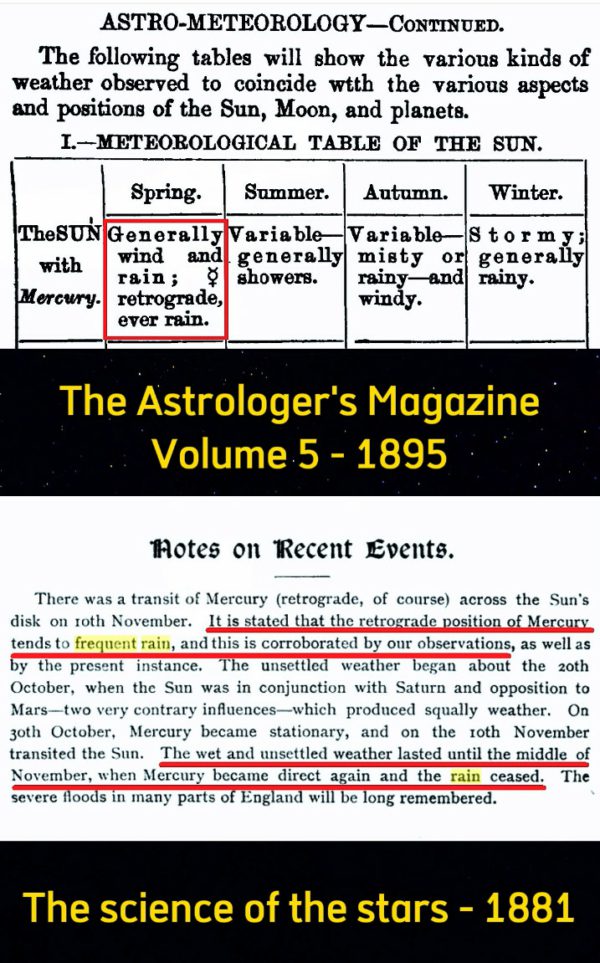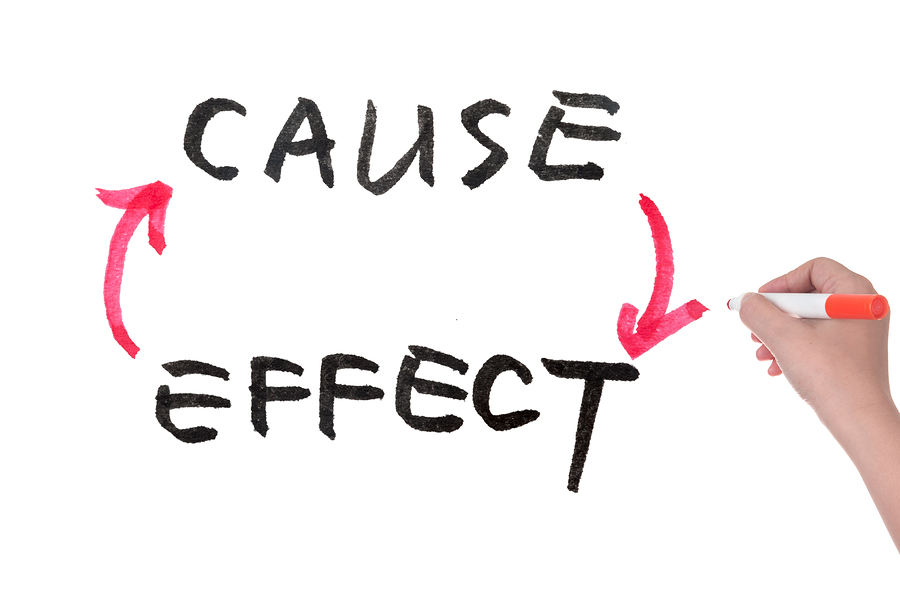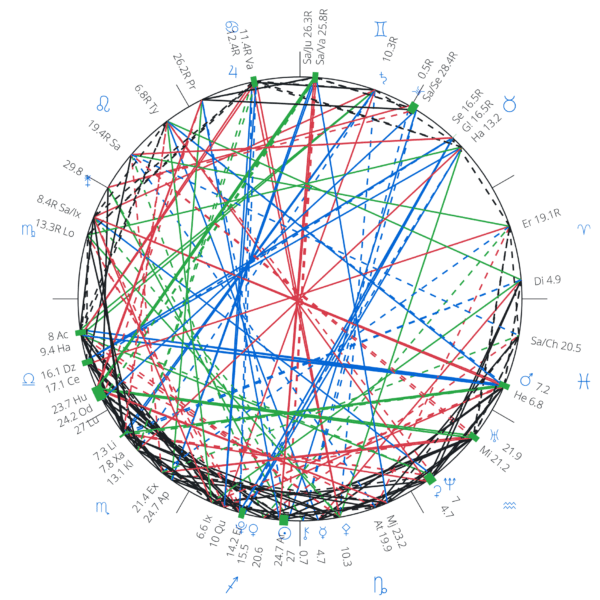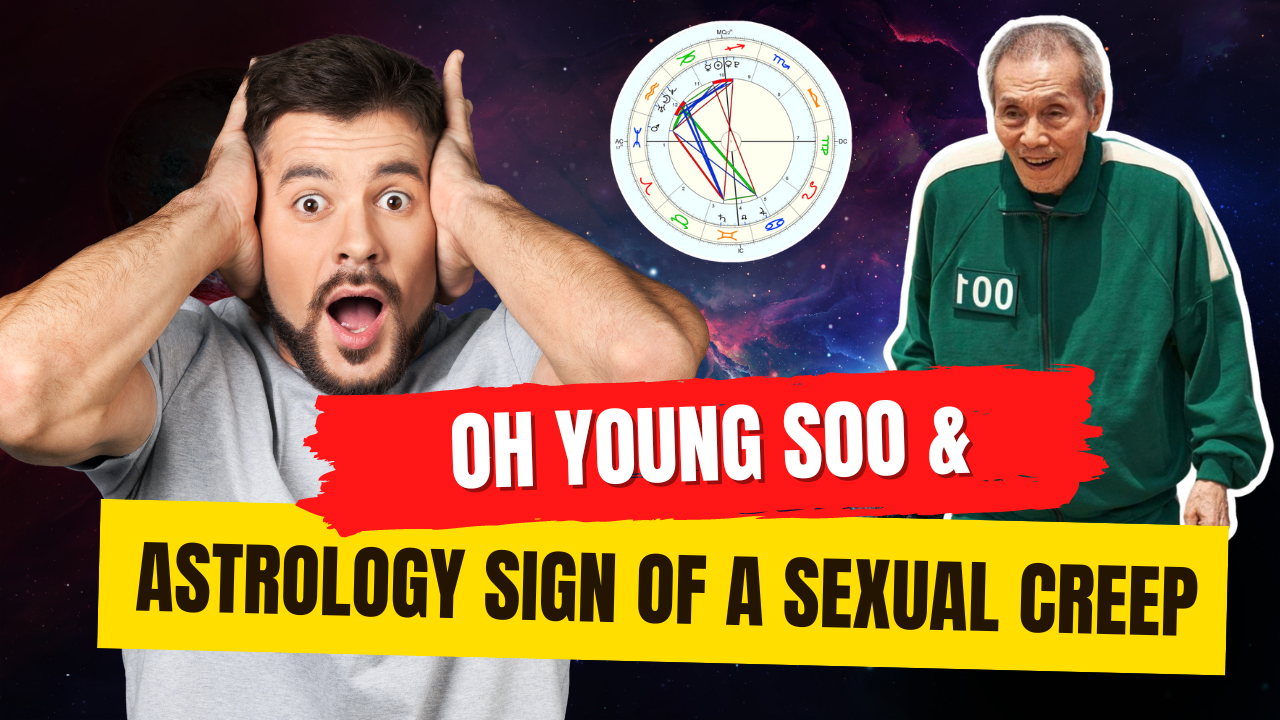Mercury Retrograde is a dreaded fear for many people, causing chaos whenever it occurs. But did you know that you’re actually being deceived? All the troubles blamed on Mercury Retrograde are just products of sensationalism by the media to grab attention.
In simple terms, Mercury Retrograde is the biggest lie in the history of astrology. Today, let’s unravel in detail the tricks behind this phenomenon.
If you don’t want to read, please watch the video version below:
—–
Retrograde Concept
So, what is Mercury Retrograde? First, we need to understand the concept of retrograde. It’s an astronomical phenomenon where, at certain times, planets appear to move backward in their usual orbits when observed from Earth.
In essence, all planets and celestial bodies in the solar system have retrograde phases. However, Mercury Retrograde has long been portrayed as a troublemaker, causing havoc and driving people crazy. Why is that?
Let’s explore the origin of this phenomenon.
Origin of Mercury Retrograde
The first mention of Mercury Retrograde was in the almanac “Vox Stellarum: Or, a Loyal Alamack,” published on 09/12/1754. This book was written for farmers who believed that the movement of planets affected crop yields.

However, it only became a national nuisance in the late 19th century.
So, what happened that messed everything up like that?
Media Sensationalism
Traditional astrologers continuously criticized Mercury Retrograde, claiming it contributed to heavy rainfall.
Here is a photo from The Astrologer’s Magazine, Volume 5, published in 1895, and the book “The Science of the Stars,” published in 1881, discussing Retrograde Mercury.

Fake news about Retrograde Mercury began to spread widely. As a result, Retrograde Mercury was depicted as a sinister force secretly sabotaging people’s lives.
However, Mercury Retrograde became a part of popular culture when the media started to exaggerate its impact. The peak of this trend was in April 1979 when The Baltimore Sun, a popular newspaper at that time, urged readers not to do anything during Retrograde Mercury.
Since then, Mercury Retrograde has officially become the scapegoat for unfortunate events. From broken phones and malfunctioning gadgets to data loss, conflicts, misunderstandings, frustration, work troubles, system errors, and even digestive problems—all blame is conveniently placed on Mercury Retrograde.
As a result, every Mercury Retrograde season brings a flood of astrologers discussing disasters, spreading fear across the Internet about impending calamities.
Law of Cause and Effect
It’s time for you to liberate yourself from the exaggerated and misleading psychological attacks mentioned above. In other words, everything the media feeds you about Mercury Retrograde is deceptive.
But to achieve this, you need to apply a bit of reasoning. Now, let’s use logic to dispel the myths surrounding Mercury Retrograde.

Many people fear Mercury Retrograde primarily due to online warnings. And it’s true that there are sometimes troubles during this period. However, two phenomena happening simultaneously doesn’t necessarily mean they are causally related. They could both be influenced by a third factor or simply occur together by chance. This is the key point – let’s consider two examples:
Example 1: During summer, the demand for sunscreen and sunblock increases. However, these two events don’t directly impact each other. The scorching summer heat is the common factor driving up both demands.
Example 2: Every morning, you go to school while your neighbor goes to the market. But these are two random events happening at the same time. So, your going to school doesn’t cause your neighbor to go to the market, and vice versa.
Similarly, Mercury Retrograde and the challenges you face may not necessarily have a causal relationship. And this is something you need to be consciously aware of.
However, I understand that many people have a superstitious mindset and may advise you not to do anything important during such sensitive times. Otherwise, they warn that disasters may be unavoidable. Now, let’s present some additional evidence.
Powerful Companies Founded During Retrograde
Do you know that many of the world’s most powerful companies were founded during Mercury Retrograde?
Specifically, let’s examine the top 30 largest publicly traded companies with the most shareholders in the U.S. These companies collectively make up the Dow Jones Industrial Average, a crucial stock market index.
Although the list may change over time, there are consistently around 8 to 10 companies in the top 30 Dow Jones that were founded during this sensitive period.

In the current top 30 U.S. companies, 8 were founded during Mercury Retrograde season..
- Johnson & Johnson: founded on November 10th 1887
- Procter & Gamble: founded on May 5th 1905
- Apple: founded on January 3rd 1977
- Cisco Systems: founded on December 10th 1984
- Boeing: founded on July 19th 1934
- Mc Donalds: founded on December 21st 1964
- Microsoft: founded on June 25th 1981
- Caterpillar: founded on May 22nd 1936
As a result, 8 / 30 x 100% = 32%—or approximately to 1/3—of the strongest companies in the United States were founded during Retrograde Mercury.
Each period of Retrograde Mercury typically lasts for about 3 weeks, occurring 3 to 4 times a year.
For simplicity, let’s take the average as 3.5 times per year. This means we have approximately 3.5 x 21 = 73.5 days of Retrograde Mercury each year.
Consequently, the average annual Retrograde Mercury rate is approximately 20.14% (73.5 / 365 x 100%).
Now, let’s do some simple math.
The average annual Mercury Retrograde occurrence is approximately 20.14%, but the rate of successful companies founded during Mercury Retrograde is 32%, higher than the Mercury Retrograde rate.
As a result, it seems that companies founded during Mercury Retrograde have a higher likelihood of success than failure, contrary to the rumors.
In other words, does Mercury Retrograde really bring about disasters, as suggested, when almost one-third of the most powerful U.S. companies were founded during this sensitive period?
Successful Products Launched During Retrograde
Moreover, many exceptionally successful products were launched during Mercury Retrograde, including:
- iPhone and Apple iOS Operating System: Launched on June 29, 2007.
- Microsoft Windows Operating System: Launched on November 20, 1985.
- Ford Mustang Supercar: Introduced on April 17, 1964.
According to pop astrologers, Mercury rules communication and travel, so it should also rule phones and cars. So, with the reasons of fearmongers, Mercury Retrograde would destroy these 3 products.
However, history has proven these products to be extremely successful.

Famous Singers Born During Retrograde
Additionally, many highly successful people in fields ruled by Mercury such as singing were born during Mercury Retrograde, including Madonna, Michael Jackson, Adam Levine, Lady Gaga, Justin Bieber, Rihanna, to name but a few.
Therefore, is it reasonable to consider Mercury Retrograde as bad?

Origins of Misconceptions
In essence, this is entirely normal, and we might be overcomplicating the issue. But. the reason people pay attention to Mercury Retrograde is because it rarely occurs.
So, the hype around Mercury Retrograde is similar to a progressive thinker appearing in a conservative crowd. The conservative crowd, unfamiliar with change, tends to reject the forward-thinking individual.
Now it’s time for me to present the final argument against Retrograde Mercury.
Jupiter trine Sun Aspect
People think retrograde planets are bad because it rarely happens. And this belief applies to all planets, not just Mercury. Many people consider Mars Retrograde bad, Jupiter Retrograde terrible, Saturn Retrograde dangerous, and so on.
But there are two truths that only those who deeply study astrology from a scientific perspective know. Now, I’ll share these secrets with you.

Firstly, pop astrologers unanimously agree that the trine aspect between Jupiter and the Sun is extremely beneficial. However, this aspect only exists when Jupiter is retrograde. So, if Jupiter Retrograde is bad, should we consider the trine aspect between Jupiter and the Sun as good?
Celestial Bodies Always in Retrograde
Secondly, very few know that there are celestial bodies in the solar system always in retrograde motion. Specifically, in the solar system, celestial bodies usually move counterclockwise. But these special bodies always move clockwise. For example, Dioretsa, Marsyas, Kaʻepaokaʻawela are all retrograde asteroids.
When observed from Earth, the retrograde motion of these minor planets happens at least 4 times less than Mercury Retrograde.
So, if retrograde motion is considered bad, these three minor planets should be the most evil astro bodies.
Double Standards Regarding Retrograde Planets
But have you ever heard this in the media?
I bet you haven’t, unless you have extensive knowledge of astronomy and astrology.
The fearmongers purposefully scare you when a normally retrograde planet, like Mercury, is in retrograde motion but don’t condemn these minor asteroids that almost always retrograde.
The reason they criticize and vilify Mercury but overlook Dioretsa, Marsyas, and Kaʻepaokaʻawela is that Mercury is a well-known, common planet.
So, this is the toxic double standard of those who spread fear to grab headlines, get views, generate engagement, and sell advertisements. Even worse, many of them claim to be genuine astrologers, always loyal to the truth.
Two Astrological Factors Influencing Misfortune
Now, what about the troubles you face during Mercury Retrograde? Is it really caused by it?
In reality, problems are part of life. If you want to be objective, compare the amount of trouble you face during Mercury Retrograde with the time when it’s not in retrograde motion.
But many of us tend to blind fear. This is an opening for the media and scammers to take advantage.
I’ve conducted statistics and found that my personal trouble during Mercury Retrograde is not higher than when it’s not happening.

Moreover, I’ve identified two factors directly affecting life’s challenges.
First, personal astrological cycles have the most significant impact. For example, during Heartbreak Cycle, you’re more likely to face challenges. However, personal astrological cycles vary for each person.
Second, misfortune often occurs on bad universal astrological days. And I post this calendar on my website. But this factor doesn’t influence as much as the first one.
As a result, problems arise on days when both your personal astrological cycles and universal astrological days are unfavorable. As for Mercury Retrograde, it may cause some troubles, but it’s certainly not as dangerous as the long-standing rumors and accusations suggest.
Astrology: Science or Pseudoscience?
Astrology originated as a scientific field. Many great scientists in human history studied it, like Isaac Newton, Galileo Galilei, Johannes Kepler, and Benjamin Franklin. They approached astrology scientifically.
However, after the golden age of astrology, subsequent generations stopped studying it scientifically. Instead, they used very unscientific approaches.
For instance, they resorted to mythology to borrow the meaning of planets. Many believe that asteroid Chiron represents a wounded healer just because the mythological character Chiron couldn’t heal his own wound.
So, today, astrology is no longer considered a mainstream scientific field. Some even view it as pseudoscience.
Faith in Astrology and Horoscopes
If you’ve come this far, you probably have faith in astrology, and you’re not alone. In 2012, 34% of the U.S. population believed astrology had a scientific basis. In 2022, 27% believed that the movements of planets truly affect life.
However, choosing a form of astrology based on scientific principles is not easy amid the chaos of the current market. One reason is that astrology today is often simplified into generic horoscope predictions for the 12 zodiac signs.
By 2023, the world population has reached 8 billion. So, how can you divide 8 billion people into 12 groups, each with over 666 million people, and accurately predict for all? It’s impossible.
That’s why a 2010 survey showed that 76% of respondents believed astrology had a scientific basis, but only 43% believed horoscope predictions were based on science.
When Astrology Truly Becomes a Scientific Discipline
When astrology is studied and practiced from a scientific perspective, it becomes much more intricate and sophisticated than casual horoscope predictions. Here are two astrology charts as examples.
The first chart is a basic one using only 10 fundamental planets, and it looks quite simple, doesn’t it?

However, the second chart is the same astrology chart but includes additional important planets, making it much more complex. But then, it may not be as user-friendly for the general public.

Therefore, if you truly want to delve into astrology or seek advice from it, be cautious before putting your trust in the chaotic and often confusing market of astrology, where genuine and misleading information can easily get mixed up.
Free Astrology Study Facebook Group
Follow my channel and join the Cosmic Astrology Facebook Group if you want to learn astrology with a truly scientific approach.
And if you have questions, comment. I’ll respond when I’m available.
If you want to schedule an astrology consultation, inbox me or click the link below.
For now, goodbye.
Statistics Source:
2022 https://today.yougov.com/topics/society/survey-results/daily/2022/04/22/5ad3f/1
Allum, Nick (13 December 2010). “What Makes Some People Think Astrology Is Scientific?”. Science Communication. 33 (3): 341–366
Hourly Astrology Consulting Service
Auspicious Date Selection Service
Learn Multiverse Astrology




















